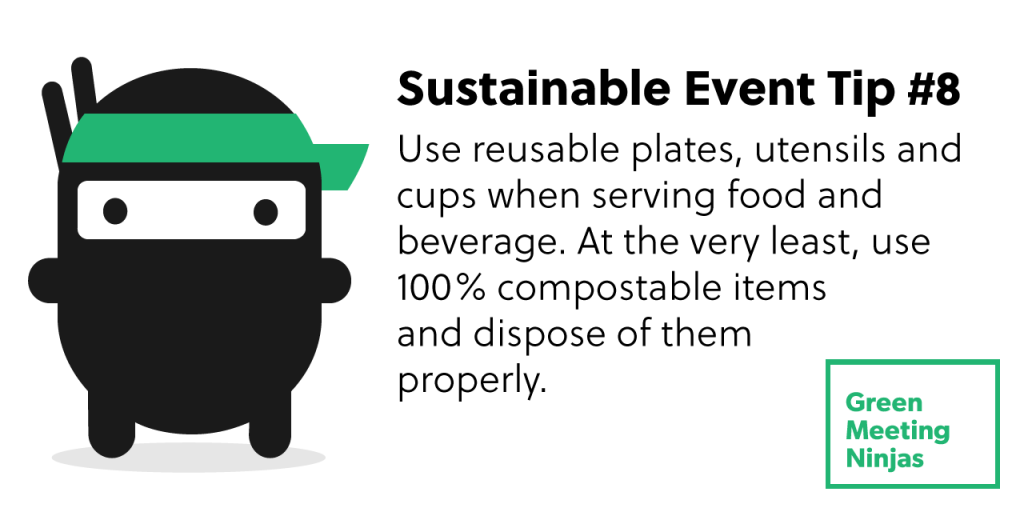Sustainable Event Tip #8 – Chinaware, Cutlery & Cups
James Watson | Posted on |

At Green Event Ninjas, we believe that the most sustainable form of food service uses reusable chinaware, cutlery, and cups. This greatly reduces the amount of waste destined for the landfill generated by an event and allows for the organizer to properly divert organic waste that is uncontaminated with plastic and other materials.
This contamination of waste is a big problem when it comes to events. Consider any kind food service at an event done with plastic plates, cutlery, and/or cups. No matter how many recycling and compost bins are placed around a venue, there will inevitably be guests that don’t pay attention and throw their waste in the wrong bin. In other cases, it may be confusing and a guest simply puts their waste in the wrong bin by mistake. Either way, what you’ll find is that each of the bins is contaminated; plastic in the compost bin, compost in the recycling bin, and plain old garbage in both. At the end of the day, if the contamination is bad enough, everything will simply be directed towards the landfill after all.
With reusable chinaware, cutlery, and cups, it’s easier to introduce an organics waste stream to an event because, while guests may throw a plastic cup in a compost bin, they’re much less likely to throw a ceramic mug in there! The result is that the compost bins remain uncontaminated and the organic waste can be properly diverted from the landfill.
Now in some circumstances, reusable chinaware may not be feasible – either the dishwashing capacity at a venue is not adequate or it’s too expensive for the organizer. In that circumstance, the best alternative would be to serve all food and beverage with compostable plates, cutlery, and cups, and to single-out the organics waste stream at the event. For example, some events will place only compost bins around a venue so that guests have no choice but to put everything into the compost. If the organizer has been careful ensuring that all of the waste generated at the event is indeed compostable, then this is a great strategy for realizing an uncontaminated organics waste stream and for achieving a “zero waste to landfill” event.

Leave a Reply